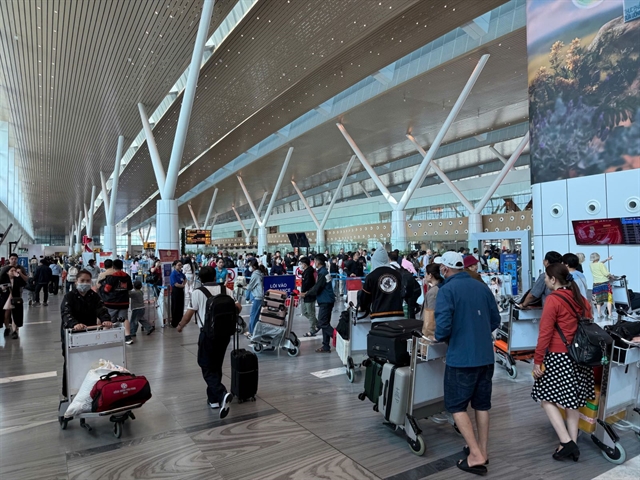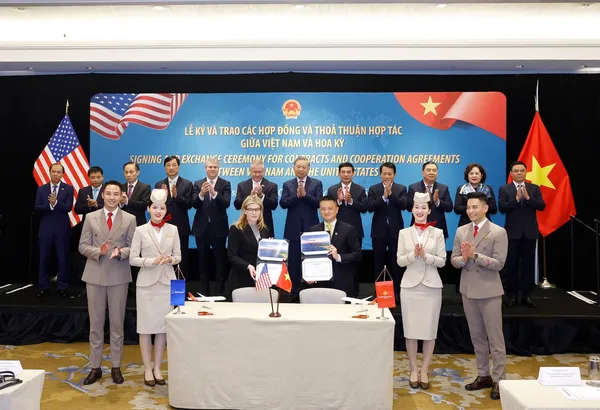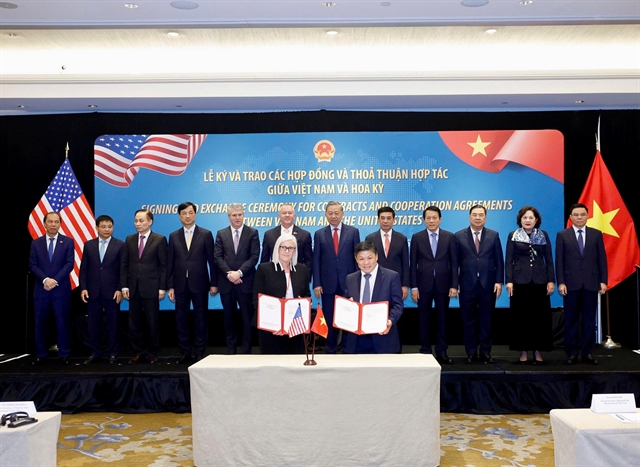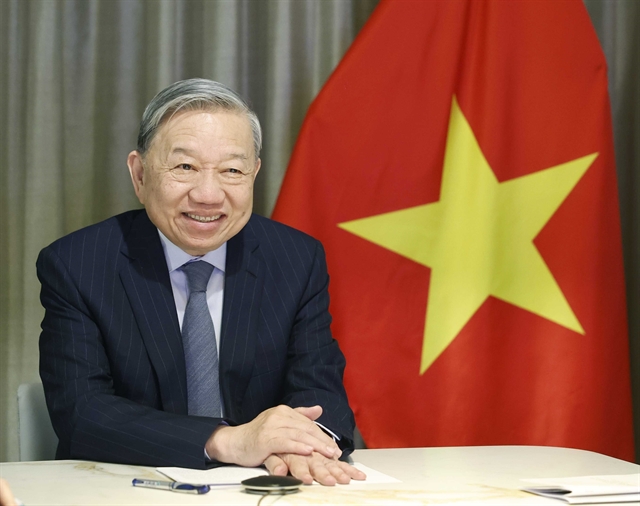 Politics & Law
Politics & Law
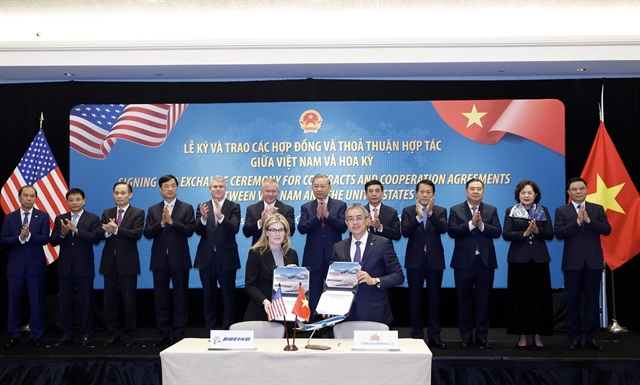
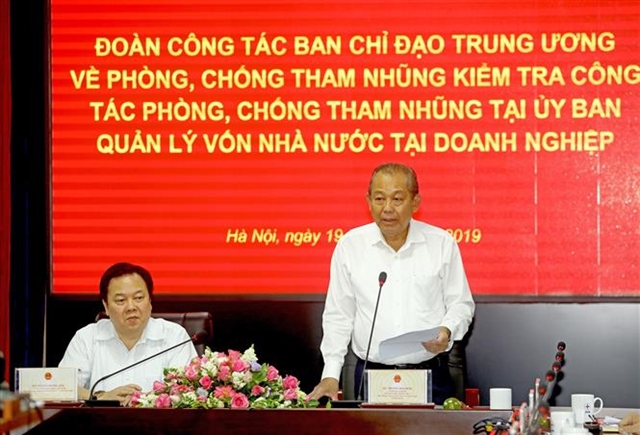
|
| Deputy Prime Minister Trương Hoà Bình speaks at the working session on anti-corruption with the Commission for the Management of State Capital at Enterprises |
HÀ NỘI – Deputy Prime Minister Trương Hoà Bình and an inspection team on Thursday worked with the Commission for the Management of State Capital at Enterprises (CMSC) for the first time since the commission’s establishment in 2018.
It was a regular inspection activity on corruption prevention by the Central Committee on Anti-Corruption, which is led by Deputy PM Trương Hoà Bình, to supervise and strengthen anti-corruption tasks at the Commission.
Bình said recently, fighting and preventing corruption was maintained continuously and enhanced aggressively, which was welcomed by both State servants and the people.
But certain limits still exist, including lax and overlapping socio-economic management policies, tardy adjustments in areas such as land and natural sources management, public assets management and spending as well as state capital management among enterprises.
State-owned companies under the management of the Commission are all important enterprises of the economy such as electricity, gasoline, aviation, food.
The task is challenging but the Commission must try to fulfill, gradually improving the efficiency of state capital management in such enterprises, the Deputy PM said.
The Commission should strengthen inspection and supervision to ensure effective implementation of State’s ownership rights at these enterprises, regularly implementing anti-corruption measures within its management.
The Deputy Prime Minister emphasised the Commission had to perform the task of managing state capital and must be responsible for the performance of corporations and companies.
Chairman of the Commission, Nguyễn Hoàng Anh, acknowledged that in recent years, the prevention and fight against corruption has received considerable attention form by the Party and the State.
Nguyễn Thị Phú Hà, Vice Chairwoman of the Commission said since its establishment in 2018, the Commission has recruited 77 cadres, civil servants and officials, far less than the required number.
Hà said that in the first eight months of 2019, the Commission fulfilled the responsibilities of the State's representative agency, such as approving the 2019 production and business plan, salary plan, assessment and supervision criteria, activities of enterprises, appraising and approving policies on investment in major projects, reviewing enterprises' land use plans.
Regarding the assignment of leadership responsibilities in the prevention and fight against corruption, the Commission leaders had assigned the Commission’s party secretary, the Secretary of the Party Personnel and the Chairman of the Commission to be in charge of anti-corruption activities.
The Commission had also recruited many experienced leaders who are well-trained from ministries, branches and localities, who understand the regulations related to the prevention of corruption, Ha said.
The CMSC is a governmental agency assigned to exercise the rights and responsibilities of the State as owner to enterprises with 100 per cent charter capital State-owned and State capital invested in joint stock companies and limited liability companies with two or more members in accordance with the law.
The CMSC is the direct representative for 19 State-owned groups and corporations such as Vietnam Petroleum Group, Vietnam Chemical Corporation, Vietnam Electricity Corporation, Vietnam Oil and Gas Corporation, MobiFone Telecommunications Company, The Vietnam Tobacco Company, Vietnam Airlines Corporation, Vietnam Railway Corporation, Vietnam Expressway Development Investment Corporation, Vietnam Rubber Industry Group. It is often referred to as the "Super Commission". — VNS


